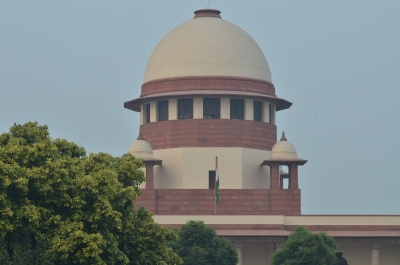New Delhi, Aug 26 : The Supreme Court on Friday noted that the announcement of freebies by political parties could cause the state to go into bankruptcy, given that it has framed questions that are preliminary and need further consideration before a final decision is made and referred the arguments against freebies before a three-judge bench.A bench that is headed by Chief Justice N.V.Ramana and comprising Justices Hima Kohli and C.T.Ravikumar declared: “Freebies may create a situation where the state government is unable to provide basic amenities due to a shortage of funds, and the state is pushed toward imminent bankruptcy.In the same vein we must be aware that these freebies are financed by the money of tax payers only to boost the number of supporters of the political party as well as its electoral prospects.”
It stressed that the issues brought up by the parties need an extensive hearing before any specific orders can be made.
It has framed the preliminary issues that could need to be considered and resolved in the petitions, as follows: “What is the scope of the judicial intervention with regards to the relief sought in the current group of petitions? If any order that is enforceable could be made by the judge in the petitions? If the appointment of an expert or commission by the court will serve any function in this regard? What should be the scope, composition and the powers of the said expert body or commission?”
The parties in the case in the case also sought a re-examination of the 2013 S.Subramaniam Balaji v.State of Tamil Nadu decision.The court in this instance decided that such promises don’t fall within the scope of fraudulent practices, as defined in Section 123 of the Representation of the People Act of 1951.
It also issued instructions for the Election Commission regarding framing of certain guidelines in the absence of any legislation that would cover the subject.
The Supreme Court said that it was important to emphasize the issue made by some of the parties that promises can’t be associative with freebies when they relate to welfare programs or measures to improve the public’s welfare.”Not only are they element of the Directive Principles of State Policy and the Directive Principles of State Policy, but they also constitute a duty of the welfare state.In the same way the concern raised herein under the cover of promises to voters fiscal responsibility is being dispensable with and is not being examined,” the bench said.
It ordered the consideration of the petitions against freebies offered by political parties prior to the going of the elections to entice voters before a three-judge panel in the context of the complexity of the issues associated with the petition.
The court also observed that certain of the parties claimed that the S.Subramaniam Balaji judgment wrongly stated that the Directive Principles of State Policy can override the Fundamental Rights under Part III of the Constitution which is contrary to the law that was enacted by the Constitution Court of the Court in Minerva Mills Ltd Vs Union of India (1980).
“Looking at the complex nature of the issues at stake, and the petition to overturn a decision made by two judges in Balaji We direct the to list of the petitions before a three-judge panel after obtaining the order of the Chief Justice of India.
The matter will be listed after four months,” the bench stated.
On August 24 on the 24th of August, the Supreme Court queried the Central government about the reason why it couldn’t create an inquiry committee to study the effect of the freebies offered by political parties to entice voters, and also whether the government could call an all-party conference to discuss the issue.
The court’s top order was based on petitions filed by advocate Ashwini Kumar Upadhyay, and others seeking instructions to the Centre and the Election Commission to take steps to regulate the election manifestos of political parties.The court also resisted the practice of political parties distributing or promising freebies to entice voters to vote during elections.
ss/vd







